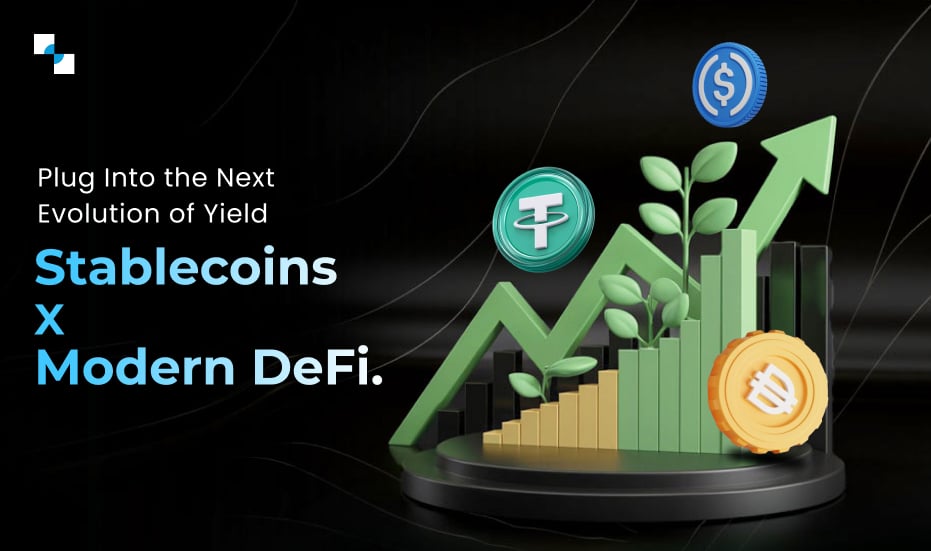As the cryptocurrency landscape continues to evolve, Bitcoin remains a cornerstone of digital finance, often regarded as the “gold” of the crypto world. Its robust security, decentralized nature, and substantial market presence make it an appealing asset for investors and enthusiasts alike. However, with the rise of DeFi and staking protocols, Bitcoin’s potential extends far beyond simple buy-and-hold strategies. Enter Bitcoin restaking—a promising method for Bitcoin holders to earn rewards while keeping their assets secure. In this blog, we’ll explore the concept of Bitcoin restaking, its significance, the advantages it offers, and how innovative platforms like the Babylon Protocol are paving the way for its adoption.
Understanding Bitcoin Restaking
Bitcoin restaking involves locking Bitcoin into a staking contract, allowing holders to participate in the security and consensus mechanisms of Proof-of-Stake (PoS) blockchains. This process creates a bridge between Bitcoin and other blockchain networks, enabling users to earn rewards from their staked assets without needing to transfer their Bitcoin to a different network. By restaking Bitcoin, holders can unlock new income streams while keeping their assets secure within the Bitcoin ecosystem.
Babylon Protocol: A New Frontier for Bitcoin Staking
At the forefront of Bitcoin restaking is the Babylon Protocol. This innovative platform provides a framework that allows Bitcoin holders to stake their assets while ensuring security and liquidity. By leveraging Bitcoin’s unique properties and combining them with PoS mechanisms, Babylon Protocol creates a win-win situation for both Bitcoin holders and the broader DeFi ecosystem.
Why Bitcoin is an Ideal Staking Asset
High Security
One of Bitcoin’s standout features is its security model. Unlike PoS assets, which are used to secure their own chains, Bitcoin is secured through proof-of-work (PoW). When Bitcoin is staked in a PoS system, it doesn’t compromise the integrity of the Bitcoin network. This unencumbered nature allows Bitcoin holders to participate in staking without the risks associated with other blockchain ecosystems.
Utilization of Idle Assets
A significant portion of Bitcoin sits idle, not generating any yield. While traditional yield-generating activities like lending and staking are predominantly available on PoS chains, Bitcoin holders often need to wrap or bridge their assets to participate. However, these methods introduce risks, often relying on centralized custodians or complex bridging mechanisms. Babylon Protocol addresses this issue, allowing Bitcoin to generate yields while remaining secure and accessible.
Decentralization and Distribution
Bitcoin’s historical significance as the first cryptocurrency gives it a highly decentralized structure, with a diverse base of holders that includes miners, early adopters, institutional investors, and retail traders. This broad distribution reduces the risk of centralization, a common concern in newer PoS chains, where early investors may hold a significant portion of the assets. The more decentralized the asset distribution, the stronger the network security, making Bitcoin an ideal candidate for staking.
Lower Volatility
As the largest cryptocurrency by market capitalization, Bitcoin has demonstrated lower volatility compared to many PoS assets. This stability is crucial for staking, as the market capitalization of the staked asset directly influences the network’s security. A sharp drop in asset value can create vulnerabilities, but Bitcoin’s relatively stable price reduces the risks associated with staking.
The Key Characteristics of Babylon Protocol
The Babylon Protocol introduces essential features that significantly enhance the staking experience for Bitcoin holders:
Fully Slashable PoS Security
Babylon ensures that in the event of a safety violation, one-third of the staked Bitcoin will be slashed. This mechanism is crucial for maintaining trust within the network. As long as two-thirds of the Bitcoin stakers act honestly, the PoS chain remains operational, emphasizing accountability and security in the staking process.
Staker Security and Assurance
A standout feature of Babylon Protocol is its commitment to staker security. Each participant can withdraw their funds as long as they adhere to the PoS protocol. This means that only those who engage in dishonest behavior risk losing their staked Bitcoin, providing a level of protection for honest stakers.
Rapid Staker Liquidity
Unlike traditional PoS chains, which often have long withdrawal times due to social consensus mechanisms, Babylon Protocol guarantees quick and secure unbonding of staked Bitcoins. This feature is particularly appealing to stakers who value liquidity, allowing them to access their funds swiftly when needed.
Trustless Staking Environment
The combination of properties offered by Babylon creates a trustless staking environment. Participants can stake their Bitcoin without fearing withdrawal censorship or other manipulative practices often seen in traditional PoS networks. This assurance is critical for fostering confidence among stakers.
The User Journey: Alice’s Experience on Babylon Protocol
To illustrate how Bitcoin restaking works, let’s follow the user journey of Alice, who decides to stake her 1 Bitcoin through the Babylon Protocol:
Entering the Staking Contract
Alice initiates the process by locking her Bitcoin into a self-custodian vault. This transaction is recorded on the Bitcoin blockchain, ensuring that only she can unlock her Bitcoin using her private key.
Validation Responsibilities
Once her Bitcoin is staked, Alice can begin validating blocks on a PoS chain using her key. This process allows her to earn rewards for her participation in the network.
Following the Protocol
If Alice follows the protocol honestly, she can issue an unbonding request when she wants to unstake. After three days, her Bitcoin will be returned to her, along with any rewards earned during the staking period.
Dealing with Malicious Actions
In the unlikely event that Alice decides to act maliciously, participating in a double-spending attack, her private key would be exposed. This action would allow anyone to send a slashing transaction to the Bitcoin chain, effectively burning her staked Bitcoin. This mechanism ensures that protocol violations are punishable, reinforcing the integrity of the staking process.
The Future of Bitcoin Restaking
As Bitcoin restaking continues to gain traction, several trends and developments may shape its future:
Broader Adoption in DeFi Ecosystems
As awareness and understanding of Bitcoin restaking grows, more Bitcoin holders may choose to participate in staking, leading to increased involvement in DeFi ecosystems. This trend could encourage the development of additional tools and platforms that support Bitcoin staking, further enhancing its utility.
Integration with Layer 2 Solutions
The emergence of Layer 2 solutions is poised to provide Bitcoin holders with even more opportunities for staking and yield generation. These solutions aim to enhance transaction speeds and reduce costs, creating a more efficient environment for Bitcoin stakers.
Enhanced Security Protocols
With the staking landscape continuously evolving, we can expect advancements in security measures. Innovative cryptographic techniques and consensus mechanisms will likely enhance the security of staked Bitcoin, ensuring participants’ confidence in the process.
Regulatory Clarity and Compliance
As regulatory frameworks around cryptocurrencies evolve, clearer guidelines for staking and yield generation will likely emerge. This clarity will bolster trust among Bitcoin holders and encourage wider adoption of restaking practices.
Conclusion
Bitcoin restaking represents a pivotal evolution in how Bitcoin holders can leverage their assets to generate additional income while maintaining the security and integrity of their investments. The Babylon Protocol offers a robust framework for facilitating this innovation, ensuring that Bitcoin remains a stable and reliable asset in the ever-expanding DeFi landscape. As the cryptocurrency ecosystem matures, the role of Bitcoin in staking will only grow, providing holders with new avenues to enhance their investment strategies while adhering to the principles that have made Bitcoin a trusted digital asset.
The future is bright for Bitcoin restaking, and as more individuals explore its potential, we may witness a transformative shift in how we think about Bitcoin and its role in the financial world.
Frequently Asked Questions
01. What is Bitcoin restaking?
Bitcoin restaking involves locking Bitcoin into a staking contract, allowing holders to earn rewards while participating in the security and consensus mechanisms of Proof-of-Stake (PoS) blockchains without transferring their Bitcoin to a different network.
02. How does the Babylon Protocol facilitate Bitcoin restaking?
The Babylon Protocol provides a framework for Bitcoin holders to stake their assets securely and with liquidity, leveraging Bitcoin's properties alongside PoS mechanisms to benefit both Bitcoin holders and the DeFi ecosystem.
03. Why is Bitcoin considered an ideal asset for staking?
Bitcoin is considered ideal for staking due to its high security model, which allows holders to participate in staking without compromising the integrity of the Bitcoin network, and it helps utilize idle assets that would otherwise not generate yield.







